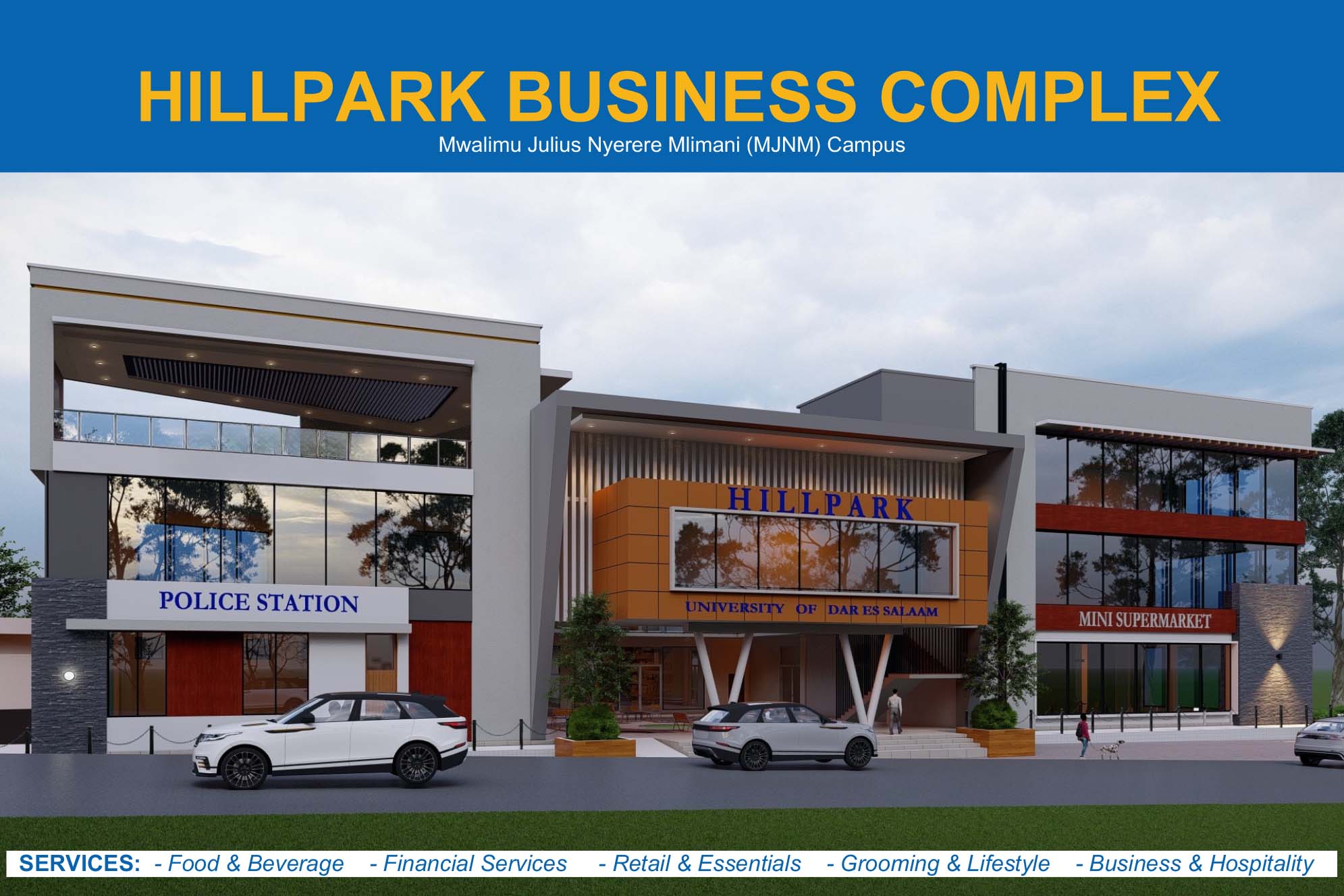UDSM and Watumishi Housing Investments Ink Landmark Deal for Hill Park Business Complex
- A bold step toward campus revitalisation and public sector innovation
By Jackson Isdory, CMU
In a landmark moment poised to transform its service landscape and redefine public sector collaboration, the University of Dar es Salaam has signed a TZS 8.5 billion contract with Watumishi Housing Investments (WHI) for the construction and management of the new Hill Park Business Complex.
The strategic development set on 12,498.5 square metres will feature a vibrant mix of retail, hospitality, executive services, and leisure spaces.
Construction is expected to be completed within 18 months, establishing a dynamic commercial hub that will serve the University community and the broader public.
Speaking at the signing ceremony in Dar es Salaam on 26 May 2025, UDSM Vice Chancellor, Prof. William A. L. Anangisye, described the project as a flagship investment aligned with Vision 2061, the University’s long-term transformation strategy.
“This is more than infrastructure, it is about building a commercial ecosystem that enhances the experience of students, staff, and visitors alike. Hill Park will be vivid symbol of our commitment to innovation through partnerships”, Prof. Anangisye said.
“We envision a space that enriches campus life, provides professional services, and fosters social and intellectual interaction”, he added.
Driving economic momentum through public sector synergy
Arch. Sephania Solomon, Acting Chief Executive Officer of WHI, highlighted the firm’s mission to deliver high-impact, sustainable investments that energise the public sector.
“Hill Park is a forward-looking investment that merges commerce, service delivery, and community engagement. It represents our core belief that public investments can be both economically viable and socially transformative”, he stated.
Facilities with Purpose and Impact
The Hill Park Business Complex will feature a diverse range of services designed to meet the needs of the University community and the public.
These will include food and beverage outlets, banks, retail shops, health and grooming services, lifestyle amenities, hospitality and business support services, as well as a modern children’s play area—all carefully curated to foster convenience, community engagement, and a vibrant campus atmosphere.
Prof. Bernadeta Killian, UDSM Deputy Vice Chancellor, Planning, Finance and Administration, underscored the importance of financial discipline in university development.
“This project is a model of how innovative thinking and prudent financial planning can deliver sustainable infrastructure without drawing from the University’s core academic funding”, said Prof. Killian.
Turning vision into value
Prof. Siasa Mzenzi, Director of Planning, Development and Investment at UDSM, described the initiative as a “turning point” for strategic institutional growth.
“This project demonstrates that UDSM is not just a centre of knowledge, but a financially agile player in national development. We are responding directly to the needs of our community both within and beyond campus,” said Prof. Mzenzi.
He noted that the development rose in response to widespread calls to improve the existing Hill Park facilities.
“We have heard the concerns. This new complex will replace outdated infrastructure with a vibrant space that brings joy to our staff, students, and guests”, he added.
Private-sector discipline in a public-sector framework
Mr. Paskali Massawe, WHI’s Chief Finance and Administrative Officer, said Hill Park Business Complex is designed to become a standout commercial destination.
“We are developing a space that is functional, elegant, and economically sound. We anticipate strong interest from tenants, investors, and SMEs. Hill Park will be an iconic addition to the UDSM landscape”, he said.
Prof. Bonaventure Rutinwa, Deputy Vice Chancellor,Academic, urged both parties to remain focused on delivering a quality project.
“This initiative complements UDSM’s strategic infrastructure modernisation. Hill Park is more than a building; it is an opportunity to enrich the learning environment and set a national benchmark for university-based commercial development”, he said.
“Learning happens not just in lecture halls but in cafés, lounges, and vibrant shared spaces where people meet, discuss, and grow”, added Prof. Rutinwa.
Anticipation builds for a revitalised complex
Even as construction begins, Hill Park’s existing restaurant continues to serve as a popular meeting spot for members of the academic community. Prof. Yusufu Lawi, a long-standing faculty member, shared his excitement about the transformation.
“Hill Park has already become our favourite lunch spot, a place to relax, share ideas, and build friendships. I am thrilled to see it evolve into something even more vibrant and welcoming,” he said with a smile.
As the sun sets over the Mwalimu Julius Nyerere Campus, the newly signed agreement marked more than a development project. It signified a new era, one of collaborative vision, institutional innovation, and financial sustainability.
The Hill Park Business Complex is set to become a beacon of modern university life and a bold model for inter-agency partnership success in Tanzania.


